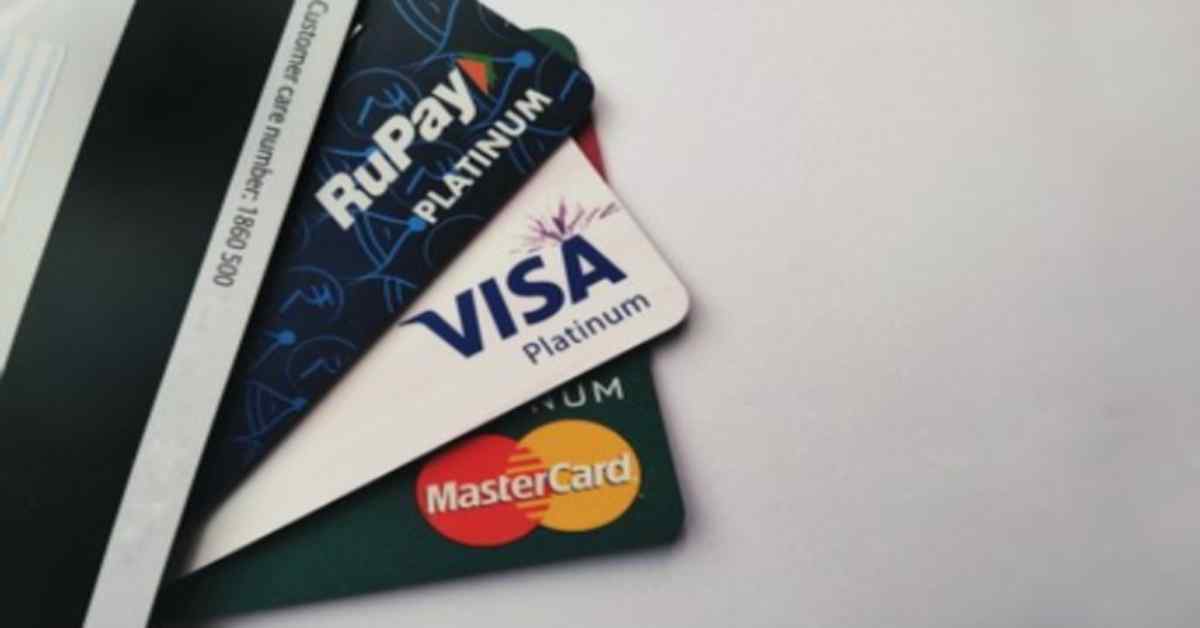Table of Contents
Quality Service Guarantee Or Painting Free

Get a rental agreement with doorstep delivery

Find the BEST deals and get unbelievable DISCOUNTS directly from builders!

5-Star rated painters, premium paints and services at the BEST PRICES!
Loved what you read? Share it with others!


Submit the Form to Unlock the Best Deals Today
Help us assist you better
Check Your Eligibility Instantly

Experience The NoBrokerHood Difference!
Set up a demo for the entire community
Balance Transfer Credit Cards: A Smart Debt Management Solution
Table of Contents
A balance transfer is a facility offered by major credit card companies to transfer the outstanding debt from a credit card to another new card to avoid high-interest rates and late payment charges. A balance transfer credit card has emerged to be of great importance for credit card holders offering greater convenience and rewards. However, it's crucial to understand the full impact of balance transfers on your credit signals before moving an amount. Understanding how balance transfers affect your credit score is one aspect of that. Let’s take a brief look at how the process of balance transfer works and whether should you use it. We have also listed the best balance transfer credit cards in India for your reference if you decide to move ahead with a money transfer credit card.
What is a Balance Transfer Credit Card?

A form of credit card transaction known as a balance transfer involves moving debt from one account to another. If done carefully, such a move can significantly reduce interest costs for people paying down high-interest debt. To entice consumers, some credit card firms remove balance transfer costs, which normally run between 3% and 5% of the transferred amount. They frequently also provide an introductory or promotional term of six to around 18 months during which no interest is charged on the transferred amount. For instance, debt that is transferred to a credit card that offers a 0% introductory APR on balance transfers may be able to be paid off without accruing interest.
You can choose the balance transfer option on a credit card from another bank if you have credit card bills that you can't pay off in full. You can transfer unpaid balances from credit cards issued by other banks through balance transfers, saving on finance fees and other penalties. Additionally, they might provide credit card debt transfer discounts or 0% interest rates for a set time period.
Quality Service Guarantee Or Painting Free

Get a rental agreement with doorstep delivery

Find the BEST deals and get unbelievable DISCOUNTS directly from builders!

5-Star rated painters, premium paints and services at the BEST PRICES!
However, there are some fees and restrictions associated with balance transfers. A balance transfer charge is typically required; it ranges from 3% to 5% of the amount being moved. Additionally, you might not be able to transfer your entire sum if the credit limit on your balance transfer card is low.
The Best Balance Transfer Cards offered by Banks in India

Choose a balance transfer card wisely: Opt for 0% introductory APR, no annual fee, and minimal transfer charges. Pay off your debt with ease and save on interest. Check for balance transfer promotions.
Here are some top cards from Indian banks:
- Axis Bank Signature Credit Card
- Axis Bank Insta Easy Credit Card
- SBI Platinum Credit Card
- ICICI Bank Balance Transfer Credit Card
- SBI Signature Credit Card
Some of the top balance transfer credit cards also include banks like:
State Bank of India
The SBI offers the same broad concept for SBI balance transfer credit card service, which may be started by entering the credit card account, sending the bank a certain SMS request, or even just dialling their customer service lines. The payback terms might be 2 months to 6 months, but a 1.7% monthly interest fee is applied if the duration is 6 months.
Axis Bank
The least amount that may be sent with Axis Bank's balance transfer service is Rs. 5,000. The available tenures are three months and six months, with the first generating no interest and the latter, six months, attracting interest on the transfer.
Standard Chartered Bank
Customers can transfer balances of up to Rs. 5 lakhs using the Standard Chartered Bank to their SC credit cards. The interest rate is 0.99% per month for the first six months, after which the card's interest rates will be applied. Customers can use the facility by sending the bank an SMS requesting a balance transfer, and they can pay a minimum of 5% of the transferred amount each month.
HSBC
The HSBC balance transfer feature is available for tenures ranging from three months to twenty-four months. Additionally, interest rates are charged based on the term, and a processing fee can be necessary. Similar to SBI, customers can use the balance transfer feature by phoning the bank or even just sending them an SMS. With no further fees possible, HSBC does provide the option to foreclose on the balance transfer.
Kotak Mahindra Bank
Even Kotak Mahindra Bank provides the ability to transfer balances. They will permit transfers of at least Rs. 2,500. As long as the amount being transferred does not exceed 75% of your credit card limit, there is no maximum amount restriction. For the alternatives, a processing fee will be assessed, which is determined by the amount being transferred. Once more, telephone, SMS, or the bank's internet site can be used to start the application process.
Comparison of Credit Card Balance Transfer Offered by Top Indian Banks
Here are the best balance transfer credit cards offered by the top Indian banks:
| Credit Card Issuer | Processing Fee | Rate of Interest per month | Applicable Lower Interest Rate Period |
| Axis Bank | 1% of transfer amount or Rs.199, whichever is higher | 0% | 3 months |
| Standard Chartered Bank | NA | 0.99% | 6 Months |
| State Bank of India | 2% of transfer amount or Rs. 199 whichever is higher if the period is 60 days and zero if the period is 6 months | 0%-1.7% | 60 Days-6 Months |
| Punjab National Bank | Rs.172 or more depending upon the transfer amount | 0.99% | 6 Months |
| HSBC (Convert due payment to EMI) | 1% (minimum Rs. 149) | 0.99% for tenures between 3-12 months 1.25% for tenures 18 months and 24 months | 3,6,9,12 months |
| Kotak Mahindra Bank | Rs. 349 per Rs. 10000 | 0% | NA |
How to transfer Credit Card Balance to another Credit Card?
Sometimes cardholders are unable to pay off one or more credit card debts at once. In this situation, they can consolidate all outstanding debt from all credit card accounts into a single account. Compared to finance costs, the interest rate on the credit card used for the balance transfer, which consolidates the outstanding debt, is typically substantially lower. Keep in mind that certain card issuers even offer 0% interest rates for a set period of time.
Once you’ve been permitted to use a card with a 0% interest balance transfer offer, find out if the rate is fixed or subject to a credit check. The next step is choosing which balances to transfer; starting with cards with the highest interest rates. (To be eligible for a transfer, the balance does not need to be in the cardholder’s name.)
Next, figure out the transfer charge, which is usually between 3% and 5%. Check if the fee subject to a cap. If not, it might be advantageous to transfer larger balances. Before you start the transfer, make sure to check the credit limit on your new card. Balance-transfer costs count toward that limit, and the requested balance transfer cannot go over the credit line that is currently open.
Who Should Apply for Credit Card Balance Transfer ?
Cardholders burdened with substantial high-interest debt can opt for a balance transfer to pay off their dues without facing hefty charges.
Keep in mind that a balance transfer is ideal when the user can settle the due amount within a few months. If the repayment timeline extends to a year or two, considering a Personal Loan might be a better option.
How to Apply for Credit Card Balance Transfer?
Cardholders have the convenience of applying for credit card balance transfers through various channels such as Netbanking, customer care, and SMS
For those seeking a new balance transfer credit card, it is essential to meet the eligibility criteria specified by the bank for the particular card variant. Additionally, proof of identity, address, and income will be necessary during the application process for the new credit card.
Advantages of a Credit Card Balance Transfer
A well-liked and practical feature of credit cards is the ability to transfer credit card balances. This choice aids cardholders in breaking vicious debt cycles that worsen because of compound interest rates. Let’s examine some of the advantages of credit card balance transfer.
- Assists you in reducing the amount of additional interest that you must pay as a result of a pending and accrued credit card bill.
- Compared to other methods of repaying credit, this is a convenient way to eliminate accumulated credit card debt.
- Customers can easily use the balance transfer service and pay off their outstanding debts because of its quick processing.
- When using the credit card balance transfer option, debts from one or more cards can be transferred.
- Cardholders are given a window of time to pay the balance on their account. This period has either no interest rate or an extremely low-interest rate.
You must bear a few things in mind when you do request a balance transfer. First, some banks will only provide this option if the balance being transferred is for a credit card that was not issued by them. The majority of banks don’t impose any limitations on the kind of card that can be used for balance transfers. Conditions may also govern the minimum and maximum sums that can be transmitted. It is important to confirm all terms and rates with the bank before submitting a balance transfer application because they are determined by the banks and are subject to change at any time.
The Downside of Using a Balance Transfer Credit Card
Despite the benefits of credit card balance transfer offers, it's essential to be aware of potential drawbacks. Here are some factors that can negatively impact the process:
- Frequent transfers can lower credit score.
- Opening new credit cards leads to hard inquiries.
- Lowers average account age, potentially damaging credit.
- May result in credit score dropping, affecting future approvals.
- Accumulating balance transfer costs can reduce interest savings.
The Effect of Balance Transfer on Credit Score
Based on your usage and repayments, a balance transfer can have a huge impact on your credit score. Here are some of the effects of transferring your credit card balance to another credit card on your CIBIL score:
Read: Exploring the Different Types of Electric Meters: Analogue Meters and Beyond
- Depending on 1) whether you open a new credit card to transfer a balance and 2) what you do after your balances have been transferred, a balance transfer may have an impact on your credit score.
- Your credit score won’t be affected if you merely switch the balances on your current cards.
- If you consolidate your debts onto one new card and take steps to lower your debt levels, your credit score might improve.
- However, your credit score may actually decline if you often obtain new credit cards and transfer balances.
- Before you transfer any open balances, it’s crucial to arm yourself with as much knowledge as you can because the results of a balance transfer could be difficult to foresee.
Is a Balance Transfer Credit Card Suitable for Me?
Opting to pay off your debt as quickly as possible is the wisest and most cost-effective decision. If you can manage to clear the balance within three months or cannot qualify for a favorable 0% APR offer, consider pre-qualifying for a personal loan. This allows you to assess the amount you could borrow and the corresponding interest rate before making a decision. If you require a higher limit and are comfortable with paying interest, a personal loan could be a suitable option.
How Can NoBroker Help?
Balance Transfer Credit Cards are often the optimal choice if you possess good credit, as they offer a 0% introductory APR on balance transfers. This option is ideal if you need several months to pay off high-interest debt, as it can save you a considerable amount on interest payments. However, it is crucial to remain vigilant about the procedure and usage of credit cards, as they are generally unsecured transactions. Moreover, did you know that with Balance Transfer Credit Cards, you can win up to ₹30,000 in rewards by paying rent through NoBroker? NoBroker provides a convenient one-stop platform for all your property payments, including rent, maintenance, deposit, and token. For more details, click here.

FAQ’s
It is advised to do a credit card balance transfer if you currently have a credit card with a balance that is being charged a high rate of interest in order to reduce your interest costs.
Only an amount up to the new credit card's credit limit may be transferred. For instance, if your new credit card's credit limit is Rs. 50,000 but your former credit card's outstanding balance is Rs. 75,000, only Rs. 50,000 can be utilised to transfer the balance. You must pay for the rest out of your own money.
The interest rate you are now paying on your current credit card and the interest rate plus fees levied by the new credit card will determine how beneficial a balance transfer is for you. If there is a significant difference, you will undoubtedly be able to avoid paying additional money in interest.
No. The procedure of transferring a credit card balance is simple and quick. The amount of time required varies from bank to bank and is often a few days.
Continually shifting your credit card balance is a bad idea. Additionally, banks do not accept routine balance transfers. As a result, the number of times you can transfer your balance is simply a matter of the bank you have in mind's discretion.
Banks may use NEFT, checks, or demand drafts to send the money.
The request might be processed in less than a week if you are transferring the money to an already-used credit card. If you want to use the balance transfer feature on a new credit card that you are applying for. The request may then be processed for up to a month.
A balance transfer is a better option if you think you can pay off the debt in a few months. However, you can apply for a personal loan if you discover that your debt exceeds your current credit card limit or that paying off the balance could take a year or longer.
No, you can only move the balance to a card account with a different bank.
Recommended Reading

Best Rent Payment Mobile App: List of Top 10 Apps in India to Pay Rent Online
January 15, 2025
7831+ views

Rupay Vs Visa Vs Mastercard: Learn About How RuPay Card is Different From Visa And Mastercard
December 19, 2024
10609+ views

Best App to Pay Rent: Ultimate Guide for Digital Transactions
February 19, 2024
4794+ views

Pay Rent with Credit Card: Experience Secure Online Rent Payments
August 18, 2023
4445+ views

Get Your BIN Number Now and Enjoy Maximum Banking Security
July 4, 2023
3012+ views
Loved what you read? Share it with others!
Most Viewed Articles

How To Get a New Gas Connection for New House or Rented House
December 17, 2024
22004+ views

Gruha Jyothi Scheme: Meaning, Eligibility and Documents Required in 2025
December 19, 2024
16031+ views

December 26, 2024
14171+ views

Jhatpat Portal: Quick Guide to Applying for UPPCL Connections
December 19, 2024
14115+ views

Types of Electric Meters: Find the Best Option for Your Home or Business
December 24, 2024
11687+ views
We’d love to hear your thoughts
Join the conversation!
Recent blogs in
January 20, 2025 by Suju
BSES New Connection Apply: Types of Connection and More
January 15, 2025 by Priyanka Saha
January 15, 2025 by Vivek Mishra
Faridabad Water Bill Payment Online: Enjoy Efficiency and Convenience
January 15, 2025 by Kruthi
Kerala Water Bill Payment Online: Receipt, Refund and More 2025
January 15, 2025 by Prakhar Sushant



Volans Infomatics
Wonderful blog with a depth of information; great thanks for sharing it.